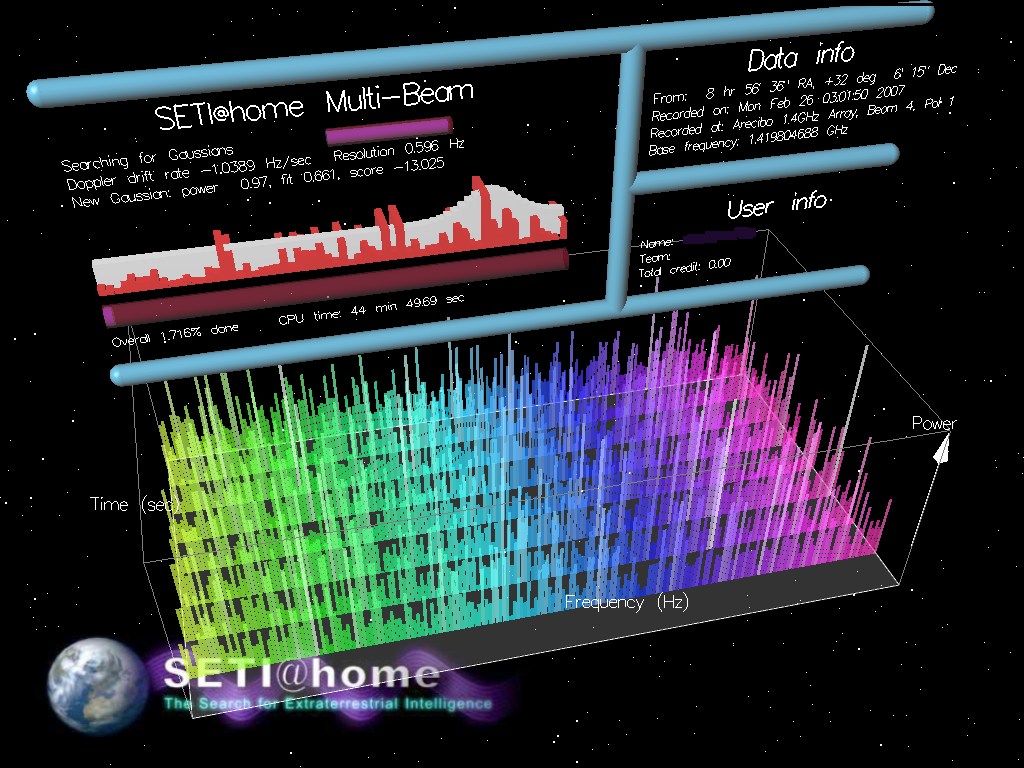Feb 18, 2016
A S.E.T.I. for psychology
The recent debate about the issue of reproducibility in psychology lead me to question whether 21th century scientific psychology should still regard the “conventional” experimental approach as the prime method of inquiry.
Even most controlled lab experiments produce results that are difficult to generalize to real-life, because of the artificiality of the setting. On the other hand, field and natural experiments are higher in ecological validity (since they are carried out in real-world situations) but are hard to control and replicate. Not to mention that most psychology research is consistently done primarily on undergraduate students.
I suggest that the digital revolution and the emergence of “citizen science” could offer a totally new research approach to psychology.

Every second, social media, sensors and mobile tools generate massive amounts of data concerning people’s behavior and activities. According to a recent forecast by networking company Cisco concerning global mobile data traffic growth trends, global mobile data traffic reached 3.7 exabytes per month at the end of 2015, up from 2.1 exabytes per month at the end of 2014. Mobile data traffic has grown 4,000-fold over the past 10 years and almost 400-million-fold over the past 15 years. Mobile networks carried fewer than 10 gigabytes per month in 2000, and less than 1 petabyte per month in 2005. (One exabyte is equivalent to one billion gigabytes, and one thousand petabytes.)
The analysis of these large-scale “digital footprints” may open new avenues for discovery to psychologists, revealing patterns that would be otherwise impossible to detect through conventional experimental methods. A cloud-based open data portal could be designed to gather data streams made available from volunteering citizens, following protocols and guidelines developed by scientists – think about it as a sort of “S.E.T.I.” project for psychology. Autorized researchers may access these shared datasets to make collective analysis and interpretations.
I argue that the introduction of collective digital experiments may offer psychology novel opportunities to advance its research, and eventually achieve the rigour of natural sciences.
23:05 Posted in Blue sky | Permalink | Comments (0)
Feb 14, 2016
3D addiction
As many analysts predict, next-generation virtual reality technology promises to change our lives.
From manufacturing to medicine, from entertainment to learning, there is no economic or cultural sector that is immune from the VR revolution.
According to a recent report from Digi-Capital, the augmented/virtual reality market could hit $150B revenue by 2020, with augmented reality projected to reach $120B and virtual reality $30B.
Still, there are a lot of unanswered questions concerning the potential negative effects of virtual reality on the human brain. For example, we know very little about the consequences of prolonged immersion in a virtual world.

Most of scientific virtual reality experiments carried out so far have lasted for short time intervals (typically, less than an hour). However, we don’t know what are the potential side effects of being “immersed” for a 12-hour virtual marathon. When one looks at today’s headsets, it might seem unlikely that people will spend so much time wearing them, because they are still ergonomically poor. Furthermore, most virtual reality contents available on the market are not exploiting the full narrative potential of the medium, which can go well beyond a “virtual Manhattan skyride”.
But as soon as usability problems will be fixed, and 3D contents will be compelling and engaging enough, the risk of “3D addiction” may be around the corner. Most importantly, risks of virtual reality exposure are not limited to adults, but especially endanger adolescents’ and children’s health. Given the widespread use of smartphones among kids, it is likely that virtual reality games will become very popular within this segment.
Given that Zuckerberg regards virtual reality as the next big thing after video for Facebook (in March 2014 his corporation bought Oculus VR in a deal worth $2 billion), perhaps he might also consider investing some of these resources for supporting research on the health risks that are potentially associated with this amazing and life-changing technology.
21:55 Posted in Virtual worlds | Permalink | Comments (0)






